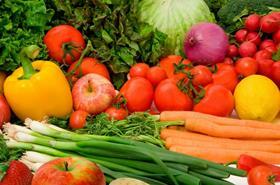
New research conducted by the University of Liverpool and partners shows that food policies, such as fruit and vegetable subsidies, taxes on sugar sweetened drinks, and mass media campaigns to change dietary habits, could avert hundreds of thousands of deaths from cardiovascular disease (CVD) in the US.
Efforts to improve dietary choices through economic incentives have been successful in the past, but the impact of such changes on CVD – the leading cause of mortality in the US – has not been clear.
The research, conducted by the University’s Institute of Psychology, Health and Society, Imperial College London and colleagues at the Friedman School of Nutrition Science and Policy at Tufts University, US, examined the existing US IMPACT Food Policy Model, coupled with data on CVD mortality, to determine how different food policy scenarios might impact CVD deaths.
The researchers estimated that a national 10 per cent subsidy for fruit and vegetables was likely to be the most beneficial action, potentially resulting in 150,500 fewer CVD deaths by 2030.
A 30 per cent fruit and vegetable subsidy targeting only SNAP (or food stamp) recipients was estimated to avert 35,100 CVD deaths; a mass media campaign to change dietary habits might avert 25,800 CVD deaths, and a 10 per cent tax on sugar sweetened beverages might avert 31,000 deaths from CVD.
The targeted SNAP-only subsidy would reduce disparities the most, and an approach combining these policies, they calculated, could have an especially large impact, saving around 230,000 lives and also reducing the disparity between CVD in SNAP recipients and non-SNAP recipients.
Dr Jonathan Pearson-Stuttard, University of Liverpool, said: “The findings of this study have important implications for crafting specific price and incentive policy approaches to optimise access to fruits and vegetables and reduce consumption of sugar sweetened beverages.”






No comments yet